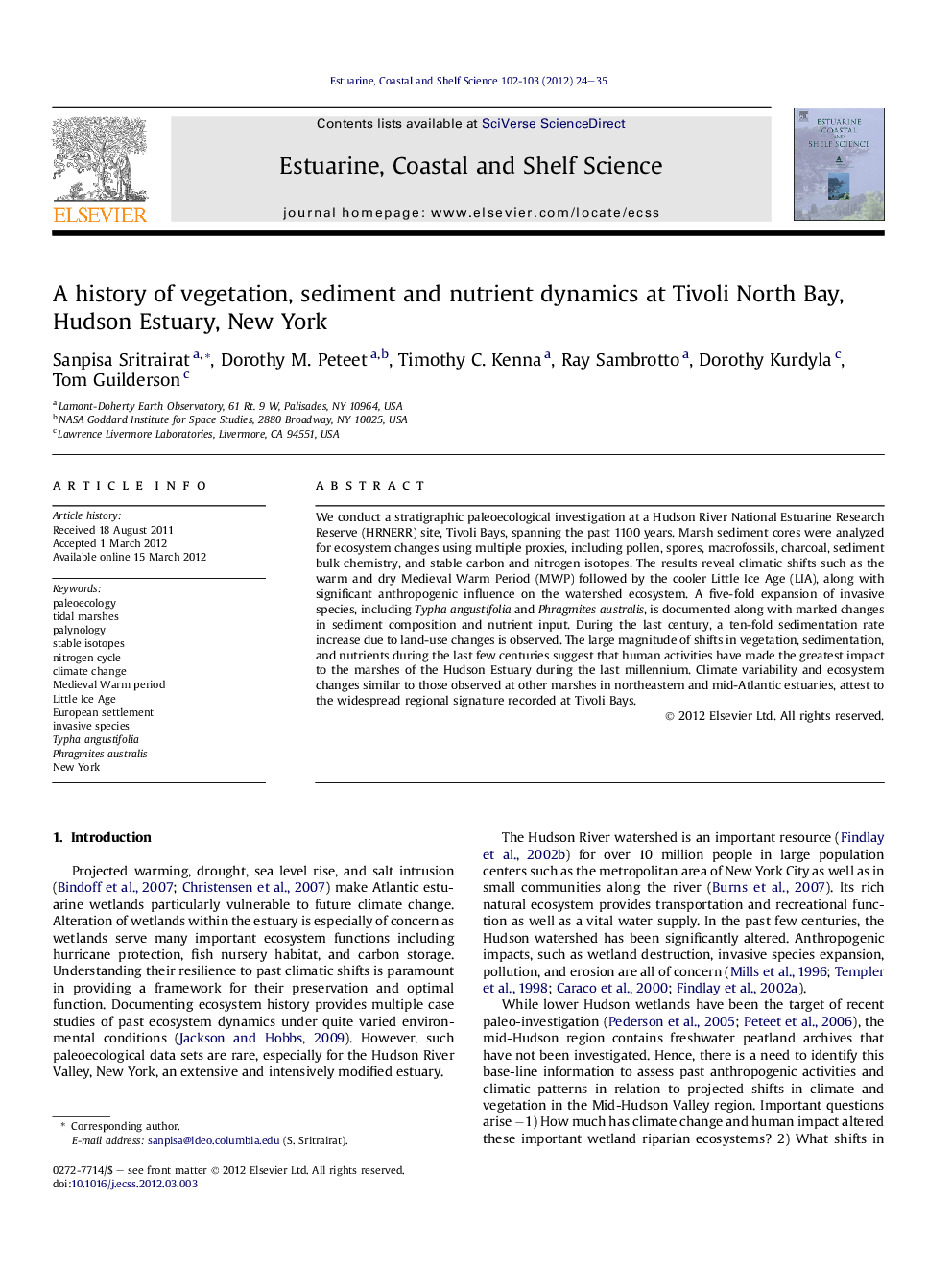| کد مقاله | کد نشریه | سال انتشار | مقاله انگلیسی | نسخه تمام متن |
|---|---|---|---|---|
| 4540279 | 1626691 | 2012 | 12 صفحه PDF | دانلود رایگان |

We conduct a stratigraphic paleoecological investigation at a Hudson River National Estuarine Research Reserve (HRNERR) site, Tivoli Bays, spanning the past 1100 years. Marsh sediment cores were analyzed for ecosystem changes using multiple proxies, including pollen, spores, macrofossils, charcoal, sediment bulk chemistry, and stable carbon and nitrogen isotopes. The results reveal climatic shifts such as the warm and dry Medieval Warm Period (MWP) followed by the cooler Little Ice Age (LIA), along with significant anthropogenic influence on the watershed ecosystem. A five-fold expansion of invasive species, including Typha angustifolia and Phragmites australis, is documented along with marked changes in sediment composition and nutrient input. During the last century, a ten-fold sedimentation rate increase due to land-use changes is observed. The large magnitude of shifts in vegetation, sedimentation, and nutrients during the last few centuries suggest that human activities have made the greatest impact to the marshes of the Hudson Estuary during the last millennium. Climate variability and ecosystem changes similar to those observed at other marshes in northeastern and mid-Atlantic estuaries, attest to the widespread regional signature recorded at Tivoli Bays.
Journal: Estuarine, Coastal and Shelf Science - Volumes 102–103, 1 May 2012, Pages 24–35